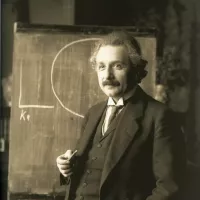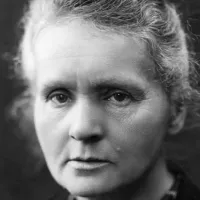UNESCO is a specialized agency of the United Nations (UN) dedicated to fostering world peace and security through international collaboration in education, arts, sciences, and culture. Comprising 194 member states and 12 associate members, UNESCO partners with non-governmental, intergovernmental, and private sector entities. Headquartered in Paris, France, it operates through 53 regional field offices and 199 national commissions to implement its global mandate.
September 1921: League of Nations Resolution
In September 1921, the League of Nations passed a resolution to form a commission to study the feasibility of nations sharing cultural, educational, and scientific achievements.
1922: Creation of the International Committee on Intellectual Cooperation (ICIC)
In 1922, the International Committee on Intellectual Cooperation (ICIC) was created, including members such as Henri Bergson, Albert Einstein and Marie Curie.
September 1924: Creation of the International Institute for Intellectual Cooperation (IIIC)
In September 1924, the International Institute for Intellectual Cooperation (IIIC) was created in Paris to execute the ICIC's work.
December 1925: International Bureau of Education (IBE) started work
In December 1925, the International Bureau of Education (IBE) began working as a non-governmental organization dedicated to international educational development.
1937: Nanjing Massacre
In 1937, the Nanjing Massacre occurred, which became the subject of controversy when UNESCO considered including related documents in its "Memory of the World" program in 2015.
November 1942: Conference of Allied Ministers of Education (CAME) Meetings Begin
In November 1942, the Conference of Allied Ministers of Education (CAME) began meetings in London.
October 1943: Moscow Declaration Expresses Necessity for International Organization
On October 30, 1943, the necessity for an international organization was expressed in the Moscow Declaration, agreed upon by China, the United Kingdom, the United States, and the USSR.
October 1944: Dumbarton Oaks Conference Proposals
In October 1944, the Dumbarton Oaks Conference proposals were presented.
June 1945: United Nations Conference on International Organization (UNCIO)
From April to June 1945, the United Nations Conference on International Organization (UNCIO) was held in San Francisco.
November 1945: United Nations Conference for the establishment of an educational and cultural organization (ECO/CONF)
From 1 to 16 November 1945, a United Nations Conference for the establishment of an educational and cultural organization (ECO/CONF) was convened in London with forty-four governments represented.
December 1945: Conference of Allied Ministers of Education (CAME) Meetings End
In December 1945, the Conference of Allied Ministers of Education (CAME) meetings, which began in November 1942, concluded.
1945: UNESCO Founded
In 1945, UNESCO was founded as the successor to the League of Nations' International Committee on Intellectual Cooperation. Its mission is to advance peace, sustainable development, and human rights through international collaboration.
1945: Creation of The UNESCO Courier magazine
The UNESCO Courier magazine was created in 1945, with the mission to promote UNESCO's ideals and provide a forum for international debate.
November 1946: UNESCO's Constitution Comes into Force
On November 4, 1946, UNESCO's Constitution came into force with the deposit of the twentieth ratification by a member state.
December 1946: First General Conference of UNESCO
The first General Conference of UNESCO took place from 19 November to 10 December 1946, and elected Julian Huxley to Director-General.
1946: Establishment of UNESCO
The list of the Directors-General of UNESCO since its establishment in 1946 is as follows.
1947: Pilot Project on Fundamental Education in Haiti
In 1947, UNESCO launched a pilot project on fundamental education in the Marbial Valley, Haiti.
1948: Arid Zone programming begins
In 1948, UNESCO initiated the Arid Zone programming project in the field of natural sciences.
1948: Recommendation for Free Primary Education
In 1948, UNESCO recommended that member countries should make free primary education compulsory and universal.
1949: UNESCO Mission to Afghanistan
In 1949, UNESCO sent an expert mission to Afghanistan as part of its early work in the field of education.
1949: Israel Admitted to UNESCO
In 1949, one year after its creation, Israel was admitted to UNESCO.
1950: Declaration on race starting
In 1950, UNESCO initiated its work against racism, with a declaration of anthropologists and other scientists.
1950: UNESCO Initiates Impact of Science on Society
In 1950, UNESCO initiated the quarterly review Impact of Science on Society (also known as Impact) to discuss the influence of science on society.
December 1951: Intergovernmental meeting leads to creation of European Council for Nuclear Research
In December 1951, an intergovernmental meeting of UNESCO in Paris led to the creation of the European Council for Nuclear Research.
1952: Joint commission established between IBE and UNESCO
In 1952, a joint commission was established between the International Bureau of Education (IBE) and UNESCO.
November 1954: Amendment to the Constitution of UNESCO
In November 1954, the Constitution of UNESCO was amended to ensure that members of the executive board would be representatives of their governments, distinguishing UNESCO from its predecessor, the ICIC.
1954: Establishment of the European Organization for Nuclear Research (CERN)
In 1954, the European Organization for Nuclear Research (CERN) was established, following the creation of the European Council for Nuclear Research by UNESCO in 1951.
1955: South Africa Withdraws from UNESCO
In 1955, the Republic of South Africa withdrew from UNESCO, citing the organization's publications as "interference" in the country's "racial problems".
1958: Garden of Peace Donated
In 1958, the Government of Japan donated a Garden of Peace to UNESCO, which was designed by American-Japanese sculptor Isamu Noguchi and installed by Japanese gardener Toemon Sano.
1960: Launch of International Campaign to Save the Monuments of Nubia
In 1960, UNESCO launched the International Campaign to Save the Monuments of Nubia, aiming to relocate the Great Temple of Abu Simbel to prevent its submersion by the Nile after the construction of the Aswan Dam.
1966: Arid Zone programming ends
UNESCO's Arid Zone programming project, which began in 1948, concluded in 1966.
1968: First Intergovernmental Conference on Environment and Development
In 1968, UNESCO organized the first intergovernmental conference aimed at reconciling the environment and development, leading to the creation of UNESCO's Man and the Biosphere Programme.
1969: International Bureau of Education (IBE) joined UNESCO
In 1969, the International Bureau of Education (IBE) joined UNESCO, following the establishment of a joint commission in 1952.
1972: Adoption of Convention concerning the Protection of the World Cultural and Natural Heritage
In 1972, the Convention concerning the Protection of the World Cultural and Natural Heritage was adopted.
1976: Establishment of World Heritage Committee
In 1976, the World Heritage Committee was established.
1978: Declaration on Race and Racial Prejudice
In 1978, UNESCO concluded its series of influential statements on race with the Declaration on Race and Racial Prejudice.
1978: First Sites Included on World Heritage List
In 1978, the first sites were included on the World Heritage List.
1980: Publication of the MacBride Report
In 1980, UNESCO's International Commission for the Study of Communication Problems produced the MacBride report, named after Nobel Peace Prize laureate Seán MacBride.
1984: United States withdrew from UNESCO
In 1984, the United States withdrew from UNESCO, citing the "highly politicized" nature of the organization, its ostensible "hostility toward the basic institutions of a free society, especially a free market and a free press", as well as its "unrestrained budgetary expansion", and poor management.
1984: US Withdrawal from UNESCO
The reasons for the withdrawal of the United States from UNESCO in 1984 are well-known; my view is that we overreacted to the calls of some who wanted to radicalize UNESCO, and the calls of others who wanted the United States to lead in emasculating the UN system.
1985: United Kingdom and Singapore withdrew from UNESCO
In 1985, the United Kingdom followed the United States and withdrew from UNESCO. Singapore also withdrew at the end of 1985, citing rising membership fees.
April 1989: Palestine Applies for UNESCO Membership
In April 1989, Palestine applied for membership in UNESCO.
1990: World Conference on Education for All
In 1990, the World Conference on Education for All in Jomtien, Thailand, initiated a global movement to provide basic education for all children, youths, and adults.
1992: Impact of Science on Society Ceases Publication
In 1992, the journal Impact of Science on Society ceased publication.
1993: Endorsement of the Windhoek Declaration
In 1993, UNESCO's General Conference endorsed the Windhoek Declaration on media independence and pluralism, leading the UN General Assembly to declare 3 May as World Press Freedom Day.
1994: Meditation Room Built
In 1994, in memory of UNESCO's 50th anniversary, a meditation room was built by Tadao Ando.
1994: South Africa Rejoins UNESCO
In 1994, under the leadership of Nelson Mandela, South Africa rejoined UNESCO.
1995: Meditation Room Built
In 1995, in memory of UNESCO's 50th anniversary, a meditation room was built by Tadao Ando.
1997: United Kingdom Rejoined UNESCO
Following a change of government in 1997, the United Kingdom rejoined UNESCO.
1997: Inauguration of the UNESCO / Guillermo Cano World Press Freedom Prize
Since 1997, UNESCO has awarded the UNESCO / Guillermo Cano World Press Freedom Prize every 3 May.
October 1998: Adoption of the World Declaration on Higher Education
On October 9, 1998, UNESCO's World Conference on Higher Education adopted the World Declaration on Higher Education, setting global standards for the ideals and accessibility of higher education.
2000: World Education Forum in Dakar
In 2000, the World Education Forum in Dakar, Senegal, led member governments to commit to achieving basic education for all by 2015.
2001: False Claim of Kabul Museum Looting in UNESCO Ad
According to a withdrawn UNESCO advertisement, a head of Buddha in the Metropolitan Museum's collection since 1930 was falsely claimed to have been looted from a Kabul Museum in 2001 and smuggled into the US art market.
2003: Adoption of Convention for the Safeguarding of the Intangible Cultural Heritage
In 2003, UNESCO member states adopted the Convention for the Safeguarding of the Intangible Cultural Heritage.
2003: United States Rejoined UNESCO
In 2003, the United States rejoined UNESCO, after having withdrawn in 1984.
2005: Adoption of Convention on the Protection and Promotion of the Diversity of Cultural Expressions
In 2005, UNESCO member states adopted the Convention on the Protection and Promotion of the Diversity of Cultural Expressions.
March 2006: The UNESCO Courier Available Online
Since March 2006, The UNESCO Courier has been available free online, with limited printed issues.
October 2007: Singapore Rejoined UNESCO
On 8 October 2007, Singapore rejoined UNESCO, after having withdrawn in 1985.
2008: Israel Bombed Islamic University of Gaza
In 2008, Israel bombed the Islamic University of Gaza, stating that they develop and store weapons there, which Israel restated in criticizing UNESCO's move to establish a chair at the university in 2012.
October 2010: UNESCO Declared Sites in West Bank as Palestinian
In October 2010, UNESCO's executive board voted to declare the Cave of the Patriarchs in Hebron and Rachel's Tomb in Bethlehem as "al-Haram al-Ibrahimi/Tomb of the Patriarchs" and "Bilal bin Rabah Mosque/Rachel's Tomb", stating that they were "an integral part of the occupied Palestinian Territories".
2010: False Claim of Ivory Coast Mask Looting in UNESCO Ad
According to a withdrawn UNESCO advertisement, an Ivory Coast mask, which had been in the United States by 1954, was falsely claimed to have been looted during armed clashes in 2010–2011.
February 2011: Article Published in Palestinian Youth Magazine
In February 2011, an article was published in a Palestinian youth magazine in which a teenage girl described Adolf Hitler as one of her role models.
June 2011: UNESCO Censure of Israel's Decision on Mughrabi Gate Bridge
On 28 June 2011, UNESCO's World Heritage Committee censured Israel's decision to demolish and rebuild the Mughrabi Gate Bridge in Jerusalem for safety reasons.
December 2011: UNESCO Condemned Magazine Material
In December 2011, UNESCO, which partly funded the magazine, condemned the material in the Palestinian youth magazine and subsequently withdrew support.
2011: False Claim of Ivory Coast Mask Looting in UNESCO Ad
According to a withdrawn UNESCO advertisement, an Ivory Coast mask, which had been in the United States by 1954, was falsely claimed to have been looted during armed clashes in 2010–2011.
2011: Palestine Became a Full Member of UNESCO
In 2011, Palestine became a full member of UNESCO, leading the United States to stop paying its annual dues.
2012: UNESCO Decided to Establish a Chair at the Islamic University of Gaza
In 2012, UNESCO decided to establish a chair at the Islamic University of Gaza in the field of astronomy, astrophysics, and space sciences, fueling controversy and criticism.
2012: Hiatus in publishing of The UNESCO Courier
There was a publishing hiatus for The UNESCO Courier between 2012 and 2017.
2013: United States and Israel Lose UNESCO Voting Rights
In 2013, two years after stopping payment of its dues to UNESCO, the United States and Israel lost UNESCO voting rights without losing the right to be elected.
2015: Target Date for Achieving Basic Education for All
2015 was the target date set in 2000 at the World Education Forum in Dakar for member governments to achieve basic education for all.
2015: Japan threatened to halt funding of UNESCO
In 2015, Japan threatened to halt funding of UNESCO because of the organization's decision to include documents related to the 1937 Nanjing massacre in the latest listing for its "Memory of the World" program.
May 2016: Zülfü Livaneli Resigned as UNESCO Goodwill Ambassador
On 25 May 2016, Turkish poet and human rights activist Zülfü Livaneli resigned as Turkey's only UNESCO goodwill ambassador, citing the human rights situation in Turkey and the destruction of the historical Sur district of Diyarbakir.
October 2016: Japan Suspended Funding of UNESCO
In October 2016, Japanese Foreign Minister Fumio Kishida confirmed that Japan's 2016 annual funding of ¥4.4 billion had been suspended, although he denied any direct link with the Nanjing document controversy.
October 2016: UNESCO Resolution on East Jerusalem
On 13 October 2016, UNESCO passed a resolution on East Jerusalem that condemned Israel for "aggressions" and "illegal measures", recognizing Israel as the occupying power.
2016: United States Elected to UNESCO Executive Board
For the period 2016–19, the United States was elected as a member of the UNESCO executive board.
October 2017: United States and Israel Announced Withdrawal
In October 2017, the United States and Israel announced they would withdraw from UNESCO, citing in-part anti-Israel bias.
October 2017: United States Notified UNESCO of Withdrawal
On 12 October 2017, the United States notified UNESCO it would again withdraw from the organization, on 31 December 2018, citing "mounting arrears at UNESCO, the need for fundamental reform in the organization, and continuing anti-Israel bias at UNESCO".
2017: The UNESCO Courier restarted publishing
After hiatus since 2012, The UNESCO Courier magazine started publishing in 2017.
December 2018: United States withdrew from UNESCO
On 31 December 2018, the United States withdrew from UNESCO, citing "mounting arrears at UNESCO, the need for fundamental reform in the organization, and continuing anti-Israel bias at UNESCO".
January 2019: Israel Formally Left UNESCO
On 1 January 2019, Israel formally left UNESCO, following the US withdrawal over perceived anti-Israel bias.
2019: Israel Leaves UNESCO
In 2019, after 69 years of membership, Israel left UNESCO, citing that UNESCO continually rewrites history.
November 2020: UNESCO Ad Campaign Withdrawn After False Claims
In November 2020, a UNESCO advertising campaign highlighting international trafficking in looted artifacts was withdrawn after falsely claiming museum-held artworks were recently looted. The adverts incorrectly stated the provenances of several artworks.
2020: UNESCO Stated Size of Illicit Trade in Cultural Property
In 2020, UNESCO stated that the size of the illicit trade in cultural property amounted to 10 billion dollars a year, while a Rand Organization report suggested the actual market is "not likely to be larger than a few hundred million dollars each year".
June 2023: UNESCO Directors-General Statistics
As of June 2023, there have been 11 Directors-General of UNESCO since its inception, including nine men and two women.
July 2023: UNESCO Membership Statistics
As of July 2023, UNESCO has 194 member states and 12 associate members.
2023: Russia Excluded from Executive Committee
In 2023, Russia was excluded from the UNESCO executive committee for the first time after failing to get sufficient votes.
2023: United States Pledged to Rejoin UNESCO and Pay Past-Due Payments
In 2023, the United States announced it was rejoining UNESCO and pledged to pay all past-due payments.
2023: United States Rejoined UNESCO
In 2023, the United States rejoined UNESCO after 5 years of leaving, and agreed to pay its $600 million in back dues. The United States was readmitted by the UNESCO General Conference that July.
February 2025: White House Said to Conduct a Review of US Membership in UNESCO
On 4 February 2025, the White House said to conduct a review of US membership in UNESCO.
July 22, 2025: The United States informs decision to withdraw again
On July 22, 2025, the United States informed the Director-General of its decision to withdraw again.
December 2026: Effective date of US withdrawl from UNESCO
The United States has communicated that its withdrawal from UNESCO will be effective December 2026.
2026: Donald Trump decided that US will again withdraw from UNESCO
On 22 July, Donald Trump decided that US will again withdraw from UNESCO, effective at the end of 2026.
December 31, 2026: Effective date of US withdrawl from UNESCO
The United States has communicated that its withdrawal from UNESCO will be effective December 31, 2026.
Mentioned in this timeline
The United States of America is a federal republic located...

Albert Einstein - was a German-born theoretical physicist renowned for...

Marie Curie born Maria Sk odowska in Poland was a...

San Francisco is a major commercial financial and cultural hub...
China officially the People's Republic of China is an East...
World War II - was a global conflict between the...
Trending

31 minutes ago Rubio discusses US mission in Iran amid reports of Trump cabinet split.

31 minutes ago Detroit Lions Release Graham Glasgow: Offensive Line Rebuild Underway
31 minutes ago MongoDB Stock Tumbles Despite Q4 Beat; Guidance and Executive Shakeup Cause Crash

31 minutes ago Connor Murphy traded to Oilers by Blackhawks after nine years with Chicago.

Carole Radziwill is an American journalist author and television personality most notably known for her role on The Real Housewives...
32 minutes ago Mbappe's Knee Injury: Tests Scheduled, Surgery Unlikely for Real Madrid Star, France Striker
Popular

Jesse Jackson is an American civil rights activist politician and...

Hillary Diane Rodham Clinton is a prominent American politician lawyer...

Jim Carrey is a Canadian-American actor and comedian celebrated for...

XXXTentacion born Jahseh Dwayne Ricardo Onfroy was a controversial yet...

Kashyap Pramod Patel is an American lawyer who became the...

Michael Joseph Jackson the King of Pop was a highly...